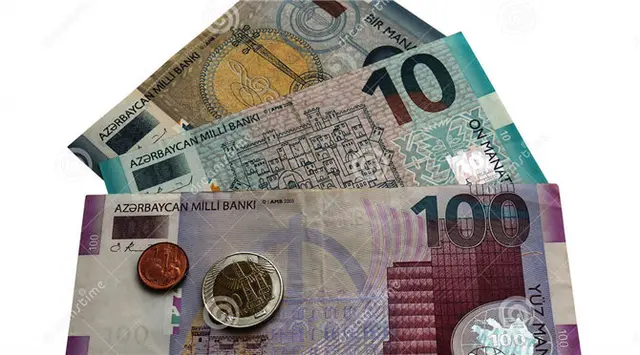Azerbaijan has abandoned its currency peg and moved to a floating rate, the country's central bank CBA said in a statement Monday.
According to the statement, the decision was made to support the balance of payments, keep the foreign exchange reserves in the country at a critical level and maintain the international competitiveness of the national economy.
Upon the floating, the national currency, the manat, fell to 1.55 against the dollar, the lowest rate on record since 1995.
Following the CBA's decision, the rate of the manat will be formed in accordance with the fundamental determinants of supply and demand in the foreign exchange market.
Meanwhile, the CBA pledged to carry out comprehensive measures to ensure the safety of the population's deposits, improve the deposit insurance system, and support financial stability and the liquidity and capital of banks.
Various factors such as the increased supply in the world energy market and the decline of economic growth in several developed countries, among others, have led to sizable declines in oil prices since June 2014, the bank said.
All of these factors have also affected Azerbaijan's economy, and the country's trade surplus and revenues of foreign exchange have sharply declined, it said.
Taking into account the serious pressure on the currency market and manat rate, the manat was devalued in February 2015 and the economy, currency market and manat rate have been adapted to the oil price of 50-55 dollars, the bank said.
However, the rapid decline in the oil price since July 2015 has significantly increased the impact on the currency market and exchange rates at the same time, and devaluations in partner countries have negatively affected the international competitiveness of the national economy, it said.
"The current situation made the currency market and manat rate adapt to the new oil prices," it added.
In October, CBA Chairman Elman Rustamov told a parliamentary session that Azerbaijani officials and international experts are currently discussing the possibility of allowing the floating exchange rate.
"The manat's rate is being determined by the global price of oil, as well as budgetary and currency policies of partner nations," Rustamov said.
On Feb. 21, the official exchange rate of the dollar to the manat was set at 1.05. The country, which relies on hydrocarbons for more than 90 percent of exports and derives 65 percent of its state budget from petrodollars, was forced to devalue its national currency.
The manat has since devalued against major foreign currencies by 33.86 percent. The CBA said that the devaluation was aimed to diversify the economy, strengthen its compatibility with international markets, boost the country's exports and avoid running up debt.
On Monday, the price of Brent crude hit a new 11-year low, at just 36.18 dollars per barrel, almost 50 percent below the 2015 peak in May.
Kazakhstan, another former Soviet republic that also relies on oil exports for revenues, introduced a floating exchange rate for its currency on Aug. 20.
 简体中文
简体中文

